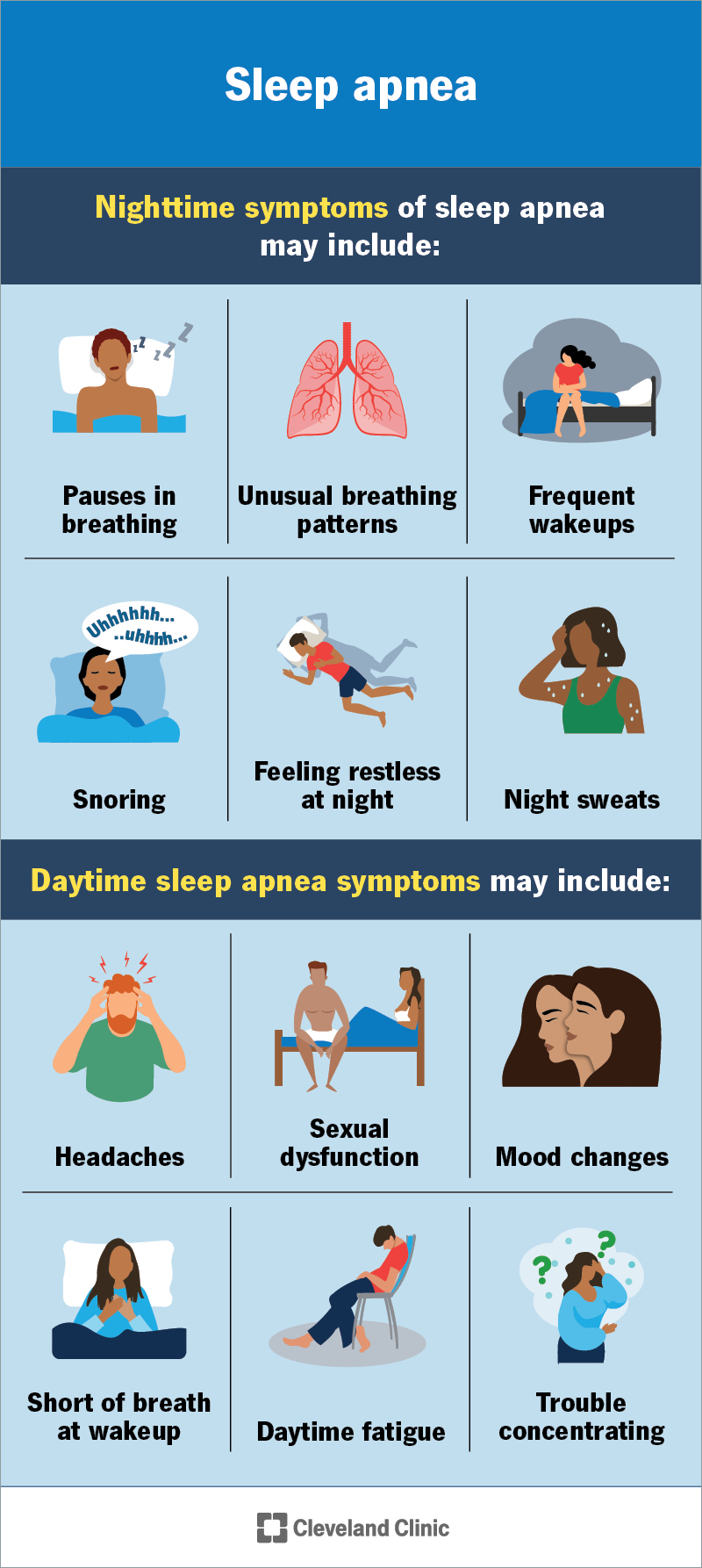Do you want to sleep better at night? Imagine waking up feeling refreshed, energized, and ready to take on the day.
You deserve nights where you fall asleep quickly and stay asleep without tossing and turning. If restless nights have become your routine, it’s time for a change. You’ll discover simple, effective tips that can transform your sleep—and your life. Keep reading, because better sleep is closer than you think.

Credit: my.clevelandclinic.org
Sleep Basics
Good sleep is a key part of a healthy life. It helps your body and mind rest. Understanding the basics of sleep can improve how you feel each day. Knowing why sleep matters and common sleep problems is a good start. This knowledge guides you to better sleep habits and peaceful nights.
Why Sleep Matters
Sleep helps your brain work well. It improves memory and focus. Your body uses sleep to heal and grow. Without enough sleep, your mood can drop. Your immune system gets weaker too. Sleep also helps control your weight and energy. A good night’s sleep keeps you strong and alert.
Common Sleep Problems
Many people struggle with sleep. Trouble falling asleep is common. Waking up often during the night can happen. Some feel tired even after sleeping. Snoring or breathing issues may cause poor sleep. Stress and anxiety also stop good rest. Knowing these problems helps find the right solution.
Create A Sleep-friendly Environment
Creating a sleep-friendly environment helps you rest better at night. Your bedroom should feel calm and relaxing. Small changes can make a big difference in your sleep quality.
Ideal Bedroom Setup
Keep your bedroom cool and comfortable. The best temperature is around 65°F (18°C). Use a good mattress and pillows that support your body. Choose soft, breathable bedding. Remove clutter to make the room peaceful. A tidy space helps your mind relax. Pick calm colors like light blue or gray for walls. Avoid bright or loud patterns that can distract you.
Limit Noise And Light
Noise can stop you from falling asleep. Use earplugs or a white noise machine to block sounds. Close windows to reduce outside noise. Light also affects sleep quality. Use blackout curtains to keep the room dark. Turn off all screens at least 30 minutes before bed. If you need a light, choose a dim, warm color. Darkness signals your brain to produce melatonin, the sleep hormone.
Develop A Consistent Routine
Developing a consistent routine helps your body know when to sleep. It trains your brain and body to get ready for rest at the same time each day. This routine makes falling asleep easier and improves sleep quality. Your body feels more relaxed and ready for sleep after some time.
Set A Sleep Schedule
Pick a bedtime and wake-up time. Stick to these times every day, even on weekends. This helps your body build a natural rhythm. Your brain starts to expect sleep at the set time. This makes falling asleep faster and waking up easier.
Pre-sleep Activities
Create a calm routine before bed. Avoid screens and bright lights. Try reading a book or listening to soft music. Do light stretches or practice deep breathing. These activities tell your body it is time to wind down. They help lower stress and prepare you for sleep.
Mind Your Diet And Exercise
Good sleep starts with healthy habits. Diet and exercise affect how well you rest. What you eat and when you move your body can help or hurt your sleep quality. Small changes in these areas often lead to better nights and brighter days.
Foods That Promote Sleep
Certain foods help the body relax and prepare for sleep. Foods rich in magnesium, like nuts and leafy greens, calm the nervous system. Warm milk and herbal teas soothe the mind. Bananas provide potassium and magnesium, which ease muscle tension. Avoid caffeine and heavy meals before bed to prevent restlessness. Choose light snacks that support natural sleep rhythms.
Exercise Timing
Regular exercise improves sleep by reducing stress and tiring the body. Timing matters. Morning or early afternoon workouts boost energy and mood without disrupting sleep. Evening exercise can raise heart rate and body temperature, making it hard to fall asleep. Aim to finish workouts at least three hours before bedtime. Gentle stretching or yoga before bed can help relax muscles and calm the mind.
Manage Stress And Relaxation
Stress can stop you from sleeping well at night. Managing stress helps your mind and body relax. A calm mind leads to better sleep. Simple habits can reduce stress and prepare you for rest. Relaxation techniques and cutting screen time play a big role in easing your mind.
Relaxation Techniques
Deep breathing calms your nerves. Take slow, deep breaths for a few minutes before bed. Try progressive muscle relaxation. Tense and then relax each muscle group. Meditation helps clear your mind. Even five minutes can make a difference. Gentle stretching or yoga eases muscle tension. These methods lower stress and make sleep easier.
Limit Screen Time
Blue light from screens tricks your brain into staying awake. Turn off phones, tablets, and TVs at least one hour before bed. Read a book or listen to soft music instead. This habit helps your body produce melatonin, the sleep hormone. Less screen time means less stress and better rest.

Credit: www.healthline.com
When To Seek Help
Knowing when to seek help for sleep problems can change your nights. Sleep issues sometimes signal deeper health problems. Ignoring them may make things worse. Early action can lead to better rest and health. Watch your body’s signals closely. Here is how to know when to get help.
Signs Of Sleep Disorders
Feeling very tired during the day often means poor sleep. Snoring loudly or choking sounds while sleeping are warning signs. Waking up many times at night disrupts rest. Trouble falling asleep for more than 30 minutes is a concern. Mood changes like irritability or sadness can link to bad sleep. Difficulty concentrating or memory problems also point to sleep issues. These signs may show a sleep disorder is present.
Professional Treatment Options
Doctors offer many treatments for sleep problems. They start with a sleep study to find the cause. Therapy can help change habits that hurt sleep. Special devices may keep airways open during sleep. Medicines can assist with some sleep disorders. Some patients benefit from counseling for stress or anxiety. Professionals create a plan to improve your sleep safely. Getting the right help leads to better nights and days.

Credit: www.sleepfoundation.org
Frequently Asked Questions
How Can I Improve My Sleep Quality Naturally?
Improving sleep quality involves a consistent bedtime, reducing screen time, and avoiding caffeine late. Relaxation techniques like meditation also help. Creating a calm, dark sleep environment supports better rest. Regular exercise promotes deeper sleep but avoid intense workouts near bedtime.
What Foods Help Promote Better Sleep At Night?
Foods rich in magnesium, tryptophan, and melatonin support sleep. Examples include almonds, bananas, turkey, and cherries. Avoid heavy, spicy meals before bed. A light snack with these nutrients can enhance relaxation and improve sleep duration.
How Does Screen Time Affect Sleep Patterns?
Blue light from screens disrupts melatonin production, delaying sleep onset. Reducing screen exposure an hour before bed helps maintain natural sleep rhythms. Using blue light filters or night mode can minimize impact and improve sleep quality.
Can Stress Management Techniques Improve Sleep?
Yes, stress management reduces nighttime anxiety, promoting restful sleep. Practices like deep breathing, yoga, or journaling calm the mind. Lower stress levels enable quicker sleep onset and fewer awakenings during the night.
Conclusion
Better sleep starts with small, simple changes in your daily habits. Focus on a calm routine before bed. Avoid screens and bright lights at night. Create a quiet and comfortable space to rest. Keep a regular sleep schedule, even on weekends.
These tips help your body relax and fall asleep faster. Good sleep improves mood, energy, and health. Try these ideas tonight and feel the difference soon. Sweet dreams are closer than you think.

